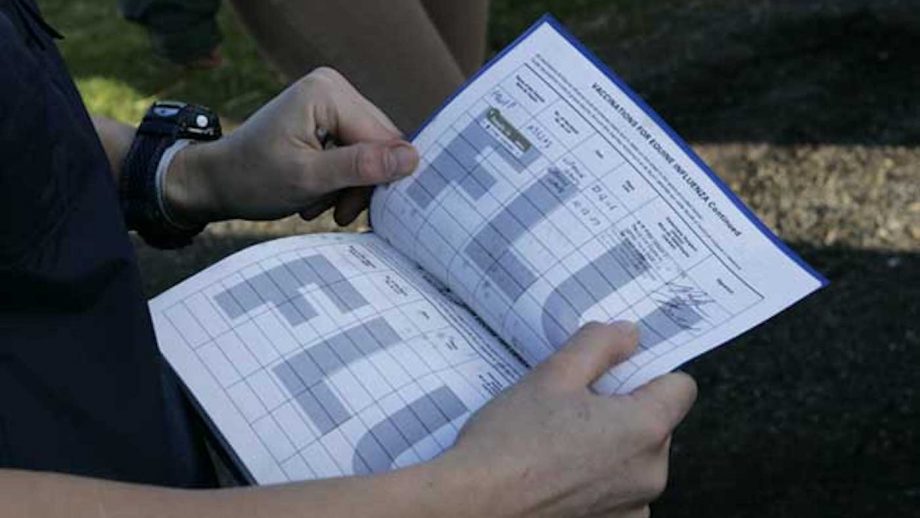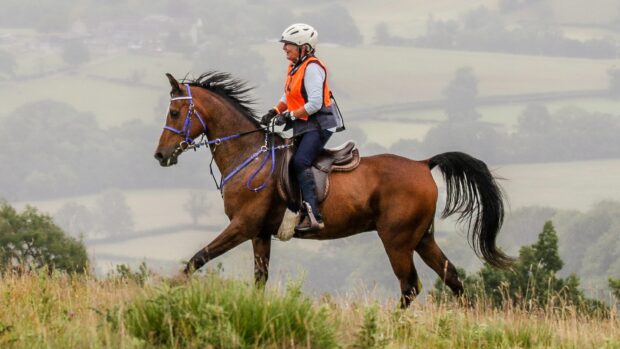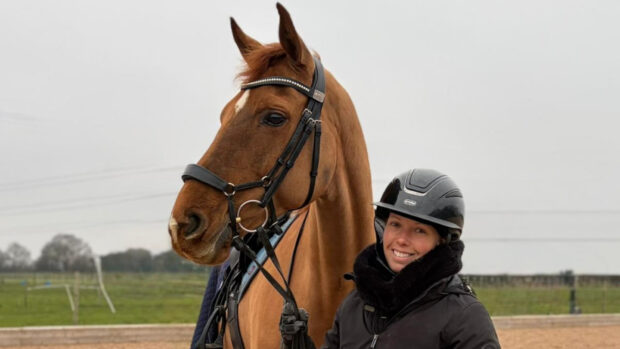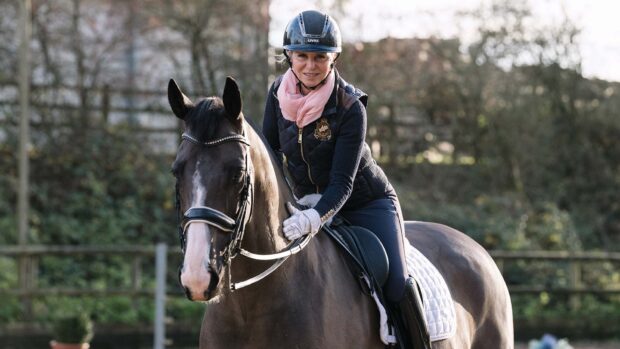Owners have been urged not to panic, nor change their practices, as experts monitor the potential impact of a shortage of equine flu vaccinations.
The British Equine Veterinary Association (BEVA), British Equestrian (BEF) and the British Horseracing Authority (BHA) are working together on the issue. The organisations had been aware of “minor interruptions to the supply” of the vaccines this year, but a “significant, pan-European logistical problem being experienced by [manufacturer] Boehringer Ingelheim has raised the prospect of a further reduction in supplies in the coming months”.
David Rendle, chair of BEVA’s health and medicines committee, told H&H there are so many variables around supply, and what manufacturers can do – it takes about six months from starting the process to get vaccine to the vets – it is difficult to make solid predictions on when supplies will return to normal.
“But everyone is working on it,” he said. “There had been low-grade supply issues throughout this year but as a result of a recent issue, Boehringer Ingelheim hasn’t been able to supply any vaccines to the wholesalers since June or July. It was expected they’d come back in stock about now, which would have been fine, but now it’s clear they can’t rectify the issue and won’t be able to supply the market until the end of October.”
Mr Rendle said the key message is that owners should not panic, nor try to arrange vaccinations early.
“Please don’t think ‘I’d better get mine done now’,” he said. “Please be responsible and consider the bigger picture. Practices and wholesalers will still have stock but there will be less influenza vaccine available, and it’s about planning now and looking at maintaining protection for everyone.”
He added that older horses, who have good immunity built up from previous jabs, will be at less risk than young horses that have not had any vaccines, who need to be prioritised to ensure they get the primary courses.
“Vets will be risk-assessing,” Mr Rendle said.
“For example, although there is compelling scientific evidence for the increased protection that comes from six-monthly vaccination as required for some competition, it may be that if people aren’t mixing those horses and aren’t competing, they could postpone the six-monthly booster as their horses are at less risk than those who need to start their courses or have an annual booster”.
Owners are reminded of the importance of basic biosecurity measures, which are always key but especially so now, such as quarantining new equine arrivals in yards, taking temperatures, monitoring for signs of infection, taking steps to minimise direct contact between horses at events and not sharing buckets or other equipment.
“This is clearly a very difficult situation as these vaccinations are so important in preventing disease outbreaks,but it’s about working together and being responsible to maximise the protection for everyone in difficult circumstances,” Mr Rendle said.
“I am sure horse owners will understand that vets are in a very difficult situation that is not of their making and will be supportive of the difficult decisions vets may have to make if there is further disruption of vaccine supply.”
Marc Laemmer, equine business head at Boehringer Ingelheim Animal Health, said: “We are currently experiencing a European-wide supply issue relating to our equine influenza and influenza-tetanus vaccines. This has been caused by unexpected issues following the implementation of a technology upgrade and is not a product or quality issue. This means that some vet practices will have difficulty obtaining sufficient influenza vaccines and there may be a shortage in the UK market. We understand the importance of these vaccines to equine welfare, and we are continuing to work tirelessly to find a solution so that we can return to normal supply as soon as possible.”
BEF CEO Jim Eyre added: “A meeting of our equine infectious disease advisory group has been held and we will work with member bodies to monitor the situation carefully. If it becomes necessary, we will collectively work to devise practical solutions for dealing with any supply difficulties.”
Amanda Melvin, equine business manager at MSD Animal Health, said: “Based on prior demand, MSD’s equine vaccines Equilis Prequenza and Equilis Prequenza Te are in full supply. MSD has taken steps to protect as many horses as possible at this time. We will continue to supply existing customers with the available MSD stock on ‘allocation’ and, where possible, to allocate stock to additional customers. Allocations are being made to our veterinary customers based on their historical demand which we believe is the most efficient way to manage the available supplies.”
Rebecca Cabrejas, equine business unit manager at Zoetis, said: “Demand for our vaccines currently exceeds what we can supply. Whilst we have adequate stocks to fulfil current customers’ orders unfortunately, we are not in a position to be able to supply new customers at this time. We will continue to work with BEVA to limit the impact of the current shortages.”
James Given, director of equine health and welfare for the BHA, said the BHA is monitoring the situation and will issue updates “in due course”.
You might also be interested in:
We all have a role in preventing spread of equine disease: new guide released

Equine flu: what all owners need to know to protect their horses

Calls for better basic biosecurity to prevent spread of disease *H&H Plus*

Subscribe to Horse & Hound magazine today – and enjoy unlimited website access all year round
Horse & Hound magazine, out every Thursday, is packed with all the latest news and reports, as well as interviews, specials, nostalgia, vet and training advice. Find how you can enjoy the magazine delivered to your door every week, plus options to upgrade your subscription to access our online service that brings you breaking news and reports as well as other benefits.




